Can a Pug Eat Pasta?
Date Published: February 12, 2024 | Last Modified: February 16, 2024
Let's kick things off with some clarity - indeed, pugs can indulge in pasta! In this article, we'll delve into the ins and outs of the health benefits pugs can gain from consuming pasta, as well as the pros and cons associated with this starchy treat. We will also address any safety concerns related to pug's pasta consumption and whether pasta is toxic to these lovable pets. By the end of this read, you'll have a better understanding of whether pasta can be a wholesome addition to your pug's diet.
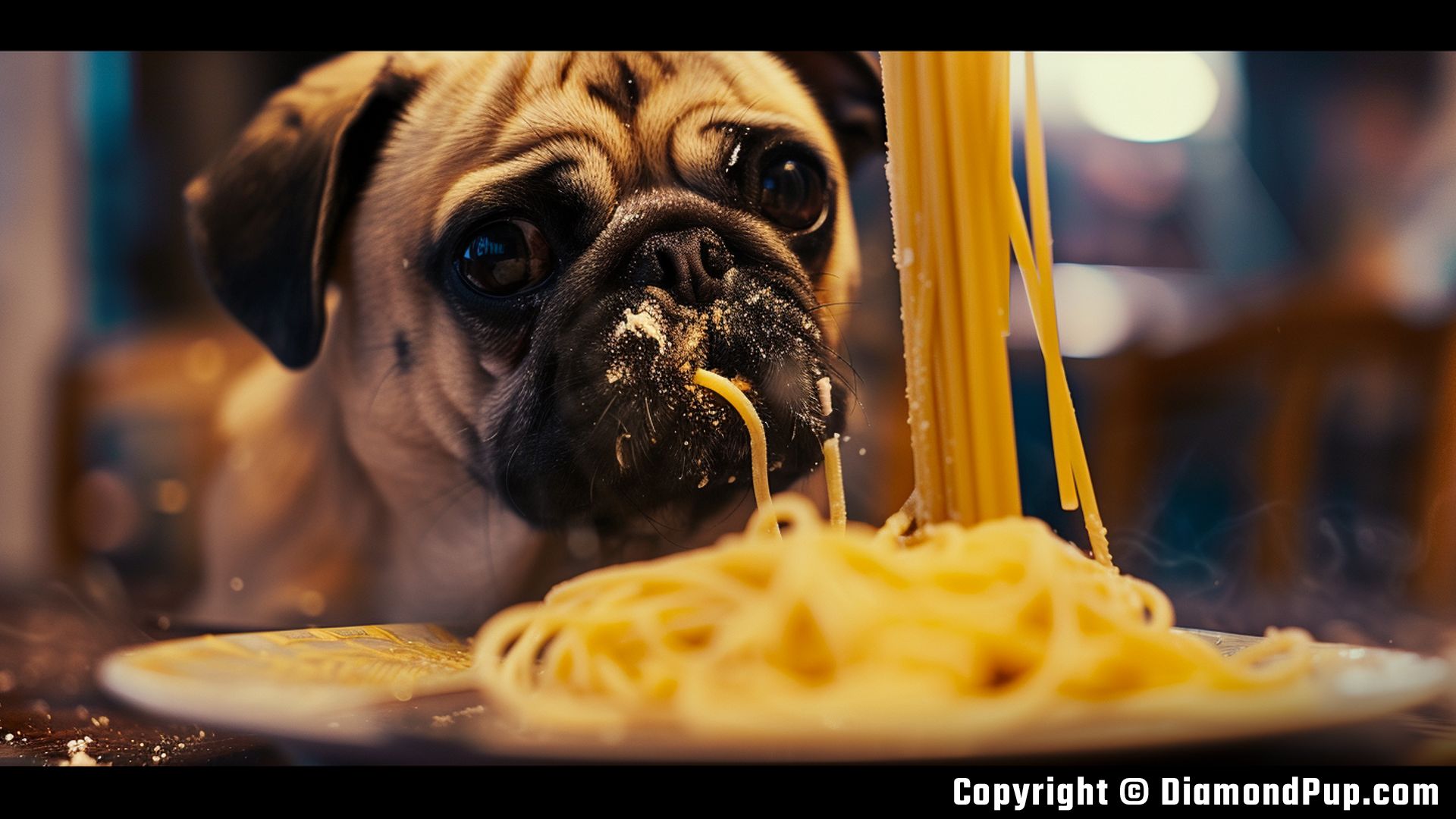
Are Pastas Good for Pugs?
When it comes to feeding pasta to your pug, there are a few things to consider. Pugs are a brachycephalic breed, meaning they have a short snout which can make eating certain foods, like pasta, a bit challenging. It's important to cut the pasta into small, bite-sized pieces to prevent choking or gagging. Additionally, pasta is high in carbohydrates which can provide a quick source of energy for your playful pug. However, too many carbohydrates can lead to weight gain, so it's crucial to feed pasta in moderation and balance it with other nutrients to maintain a healthy diet for your pug.
In terms of the type of pasta, it's best to opt for whole wheat or grain pasta for your pug. These varieties contain more fiber and nutrients compared to white pasta, which can be beneficial for your pug's digestive health. Avoid pasta dishes with high-fat sauces or seasonings, as they may upset your pug's stomach. Remember, always consult with your veterinarian before making any significant changes to your pug's diet, including incorporating pasta into their meals.
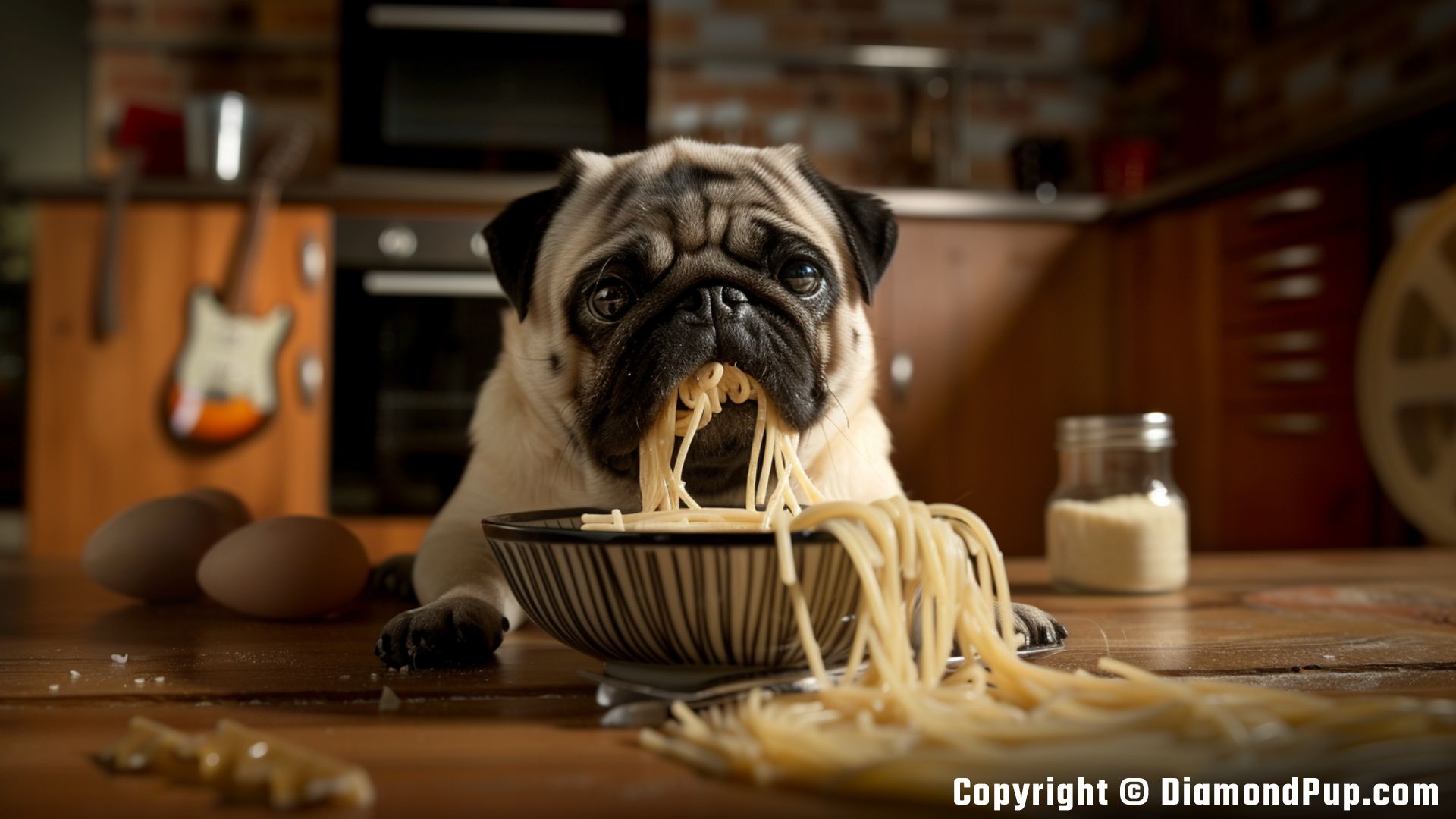
Understanding the Benefits of Pastas for Pugs
When it comes to pugs, incorporating pasta into their diet can offer several benefits. Pasta is a good source of carbohydrates, providing a readily available source of energy for these active and playful dogs. Additionally, pasta can be a good way to add variety to their diet, offering a change from their regular meals. However, it's important to ensure that the pasta is plain and cooked without any added sauces or seasonings that may be harmful to pugs.
Whole grain pasta can be especially beneficial for pugs as it contains fiber, which can aid in digestion and promote overall gut health. It's important to remember that pasta should only be given to pugs in moderation, as excessive consumption can lead to weight gain and potential health issues. Always consult with your veterinarian to determine the appropriate amount of pasta to include in your pug's diet based on their individual nutritional needs and calorie requirements.
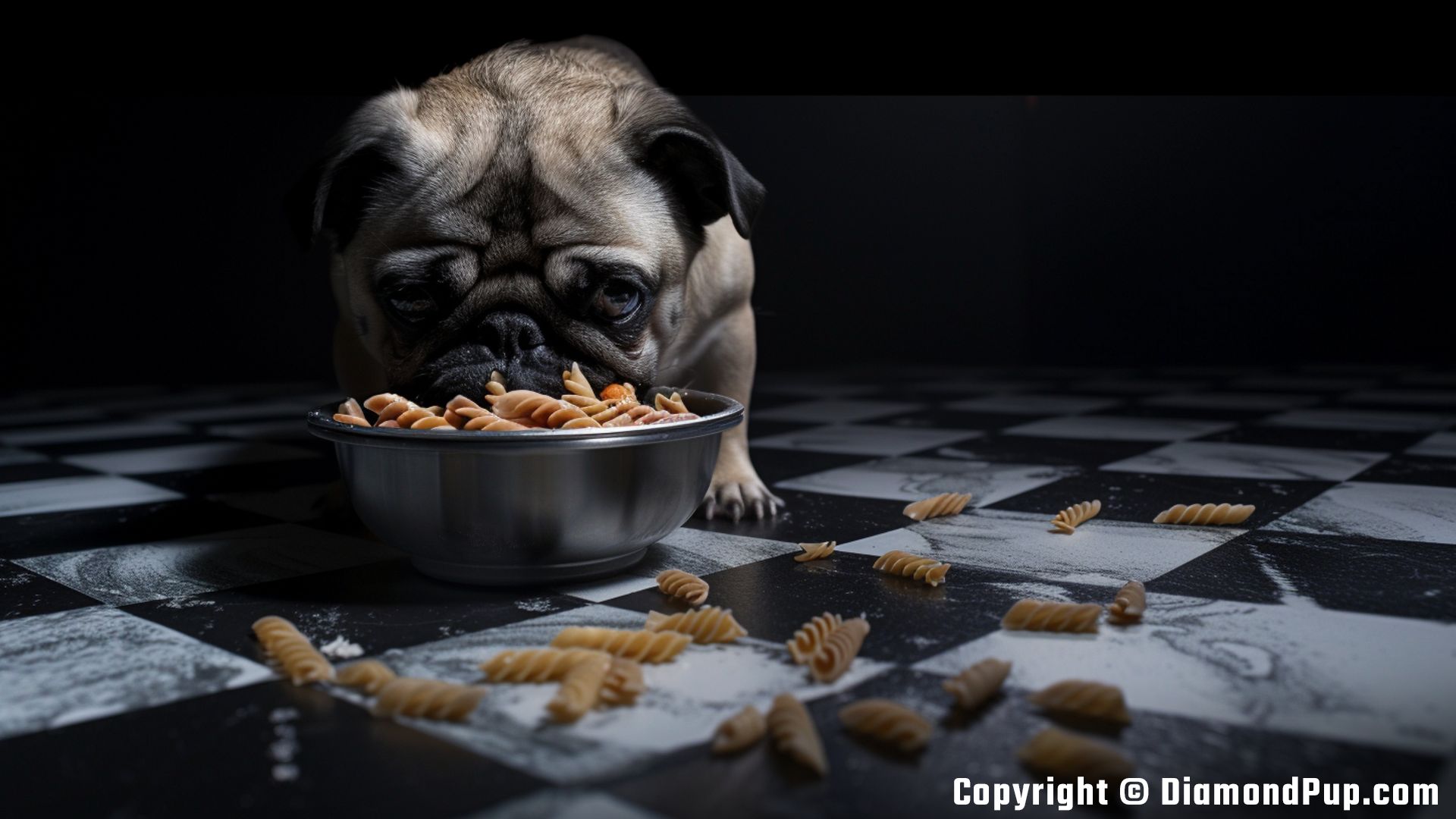
Nutritional benefits of Pastas for Pugs
When it comes to selecting the right pasta for your pug, opt for whole grain or whole wheat pasta. These varieties offer a good amount of fiber, which aids in digestion and helps in maintaining a healthy weight for your pug. People also ask is pasta good for rottweilers or other breeds, highlighting the importance of considering dietary choices carefully. Additionally, whole grain pasta contains essential nutrients such as B vitamins, iron, and magnesium, which are beneficial for your pug's overall health and well-being. Remember to serve pasta to your pug in moderation, as excessive consumption can lead to weight gain and potential digestive issues.
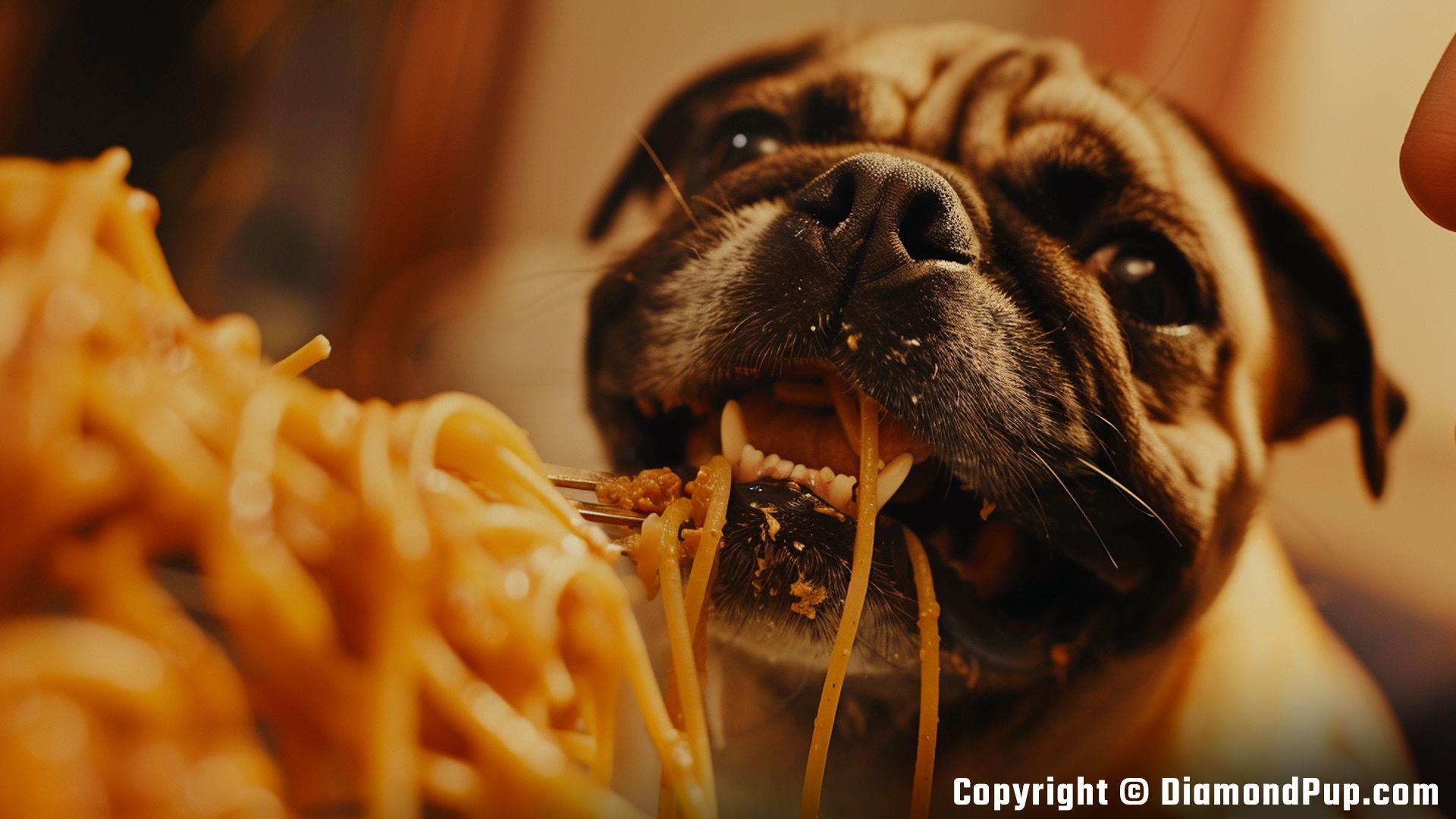
Safely Introducing Pastas to Your Pug's Diet
When introducing pasta to your pug's diet, it is essential to do so gradually and in moderation. Start by incorporating small amounts of plain, cooked pasta into your pug's regular food to observe how they tolerate it. Make sure the pasta is cooked thoroughly to avoid any gastrointestinal upset in your pug.
Additionally, consider the overall nutritional content of the pasta you are feeding your pug. Opt for whole wheat or grain-based pasta to ensure your pug receives essential nutrients like fiber, vitamins, and minerals. Avoid pasta sauces that are high in salt, garlic, onion, or spices, as these ingredients can be harmful to pugs. Always consult with your veterinarian before making any significant changes to your pug's diet.
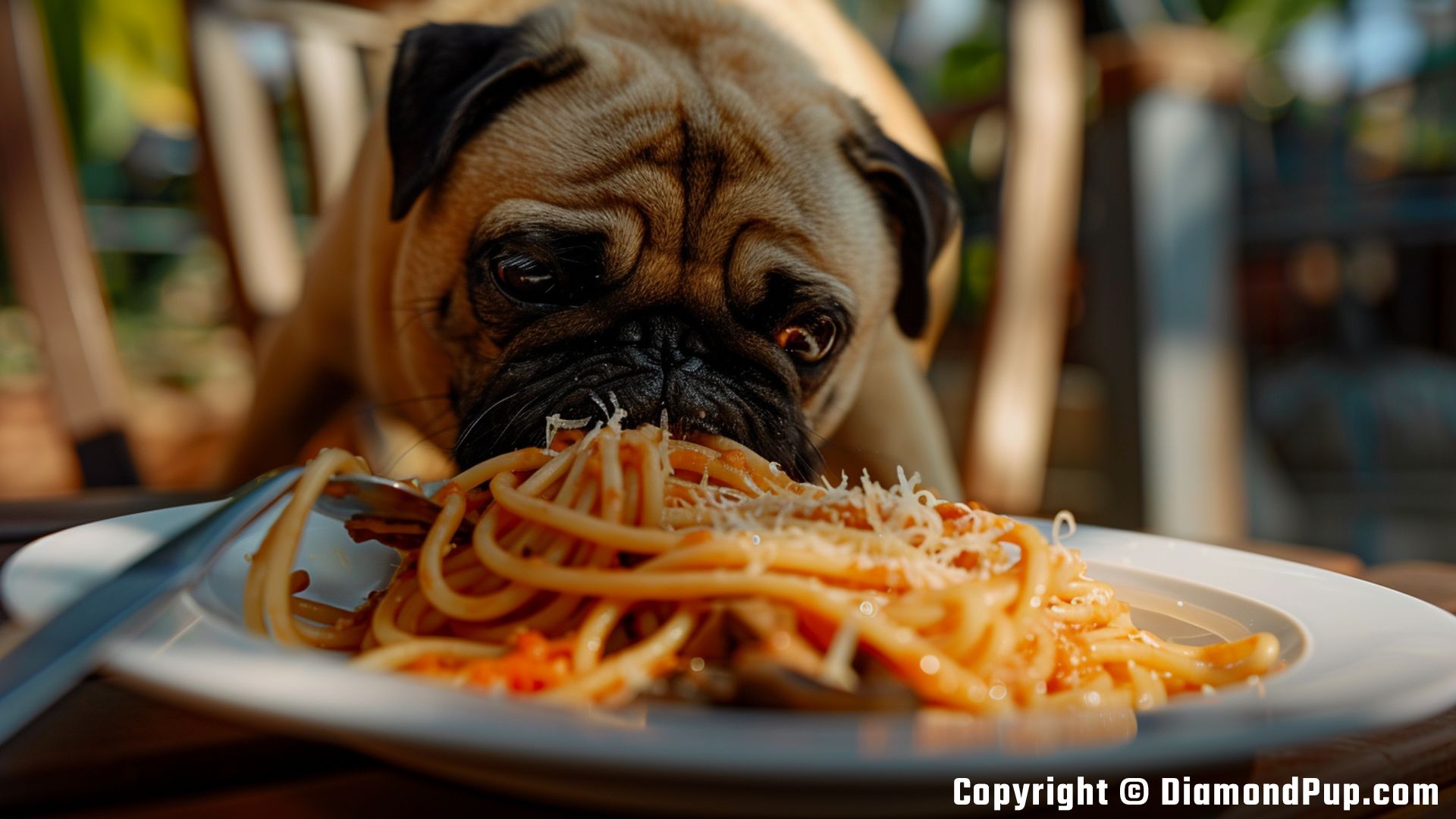
How much pasta can a dog eat safely?
When it comes to feeding your pug pasta, moderation is key. While pasta can be a safe and tasty treat for your furry friend, it should not make up a significant portion of their diet. As a general guideline, pasta should only make up about 10% or less of your pug's daily food intake. This is because pasta is a starchy food that is high in carbohydrates, which can lead to weight gain and other health issues if consumed in excessive amounts.
It's important to also consider the type of pasta you are feeding your pug. Opt for whole grain or whole wheat pasta over refined pasta, as it contains more fiber and nutrients that can benefit your pug's health. Additionally, always ensure that the pasta is plain and cooked without any added seasonings or sauces that may be harmful to your pug.
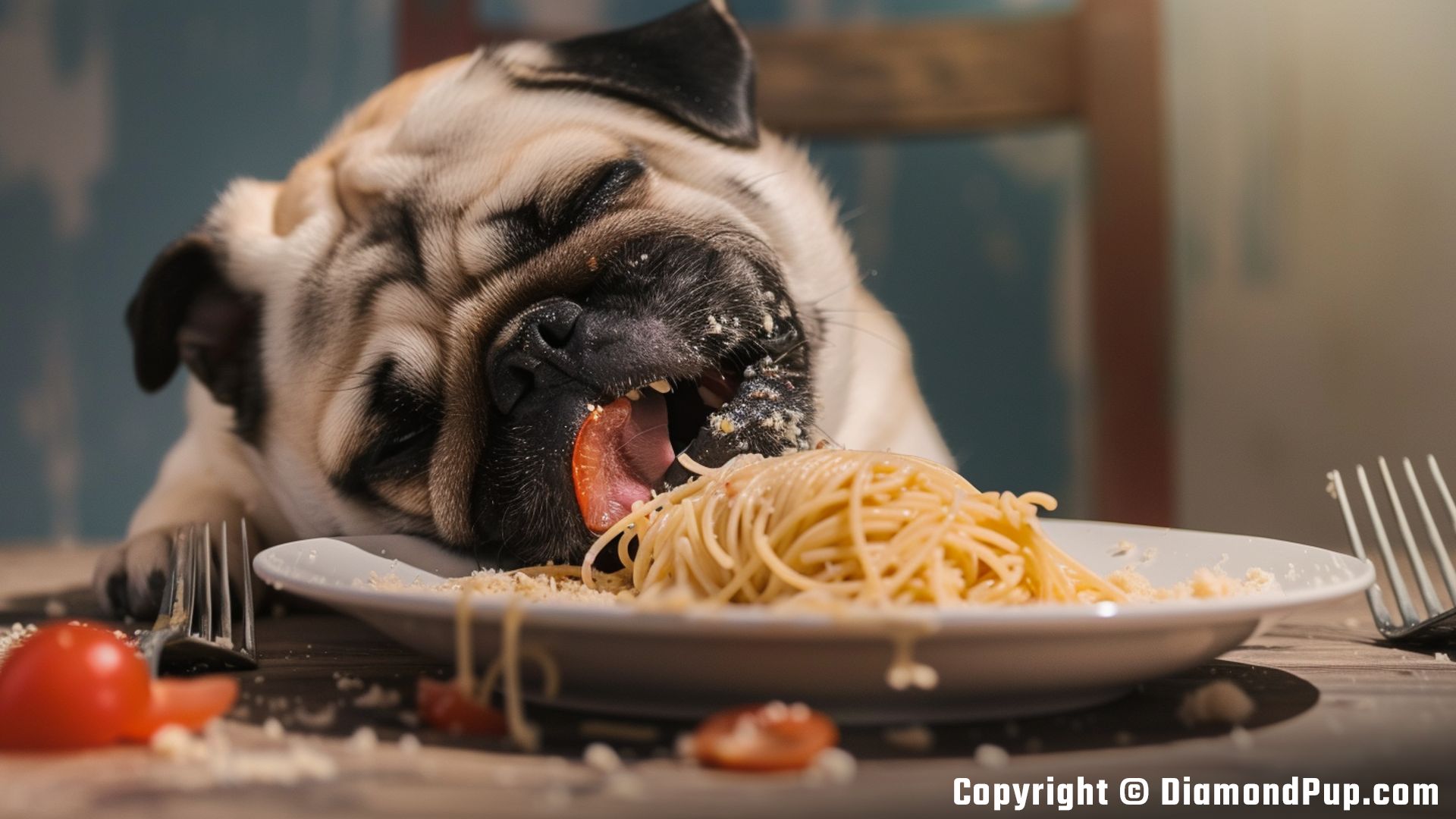
Tips to Remember When Feeding Your Pug Pastas
When feeding your Pug pasta, it's crucial to opt for whole grain or whole wheat pasta over white pasta. Whole grain pasta contains more fiber, which aids in digestion and helps regulate blood sugar levels. Additionally, it's best to serve the pasta plain without any seasoning or sauces, as these can contain ingredients like garlic and onions that are toxic to dogs.
It's also important to pay attention to portion sizes when giving pasta to your Pug. While pasta can be a tasty treat, it should only make up a small portion of their overall diet to ensure they are getting a balanced intake of nutrients. Remember, moderation is key when incorporating pasta into your Pug's meal plan.
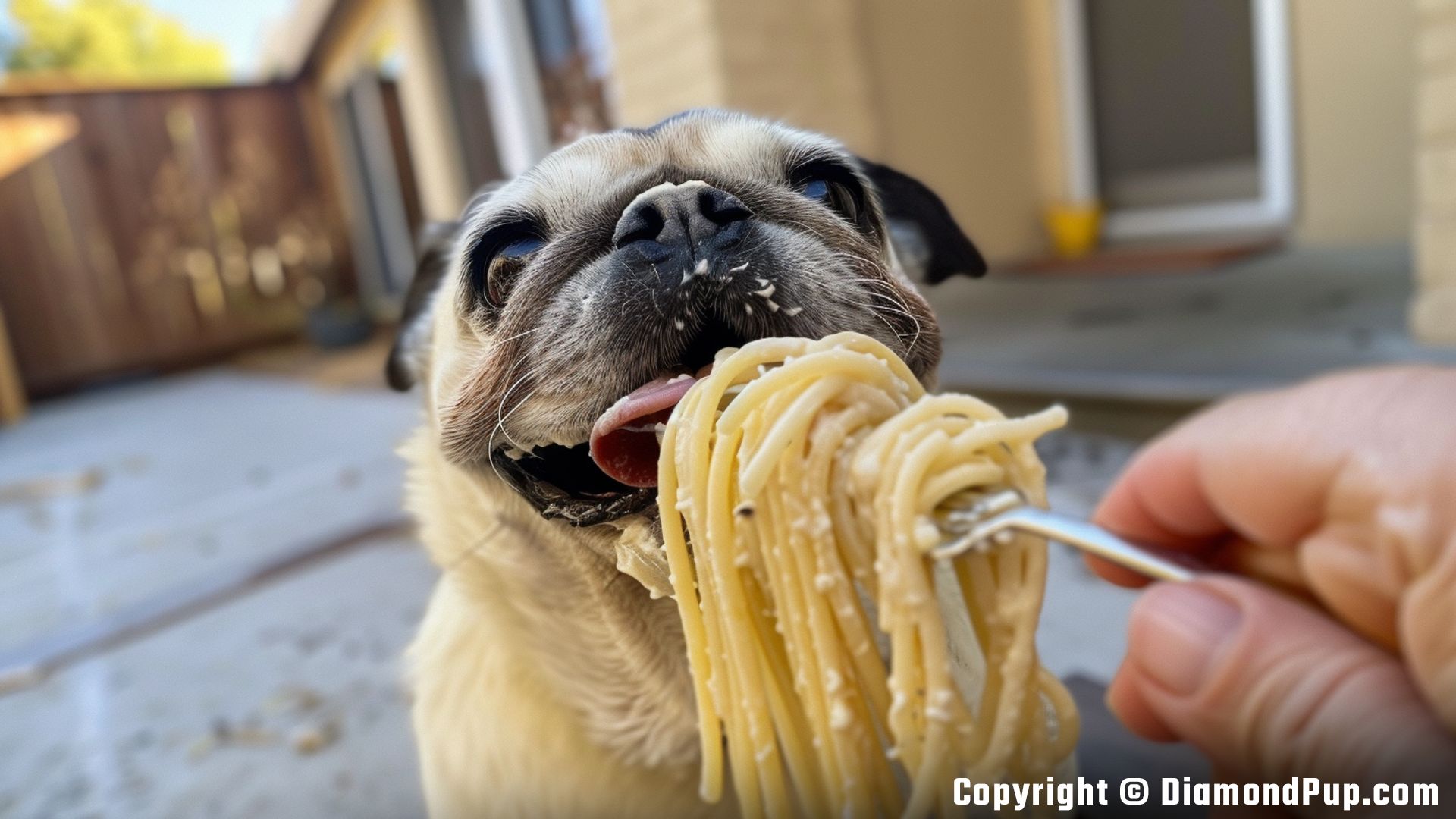
Feeding Your Pug Pastas
When it comes to feeding your pug pasta, it's essential to choose the right type and portion size. Opt for whole grain pasta instead of white pasta, as it is higher in fiber and nutrients. Additionally, avoid adding any rich, creamy sauces or seasonings that could upset your pug's stomach. Stick to plain, cooked pasta without any added ingredients.
As for portion size, it's best to offer pasta to your pug in moderation. Too much pasta can lead to weight gain and other health issues, so be sure to balance it with their regular balanced diet. A few small pieces of plain, cooked pasta as an occasional treat can be a safe and enjoyable addition to your pug's mealtime.
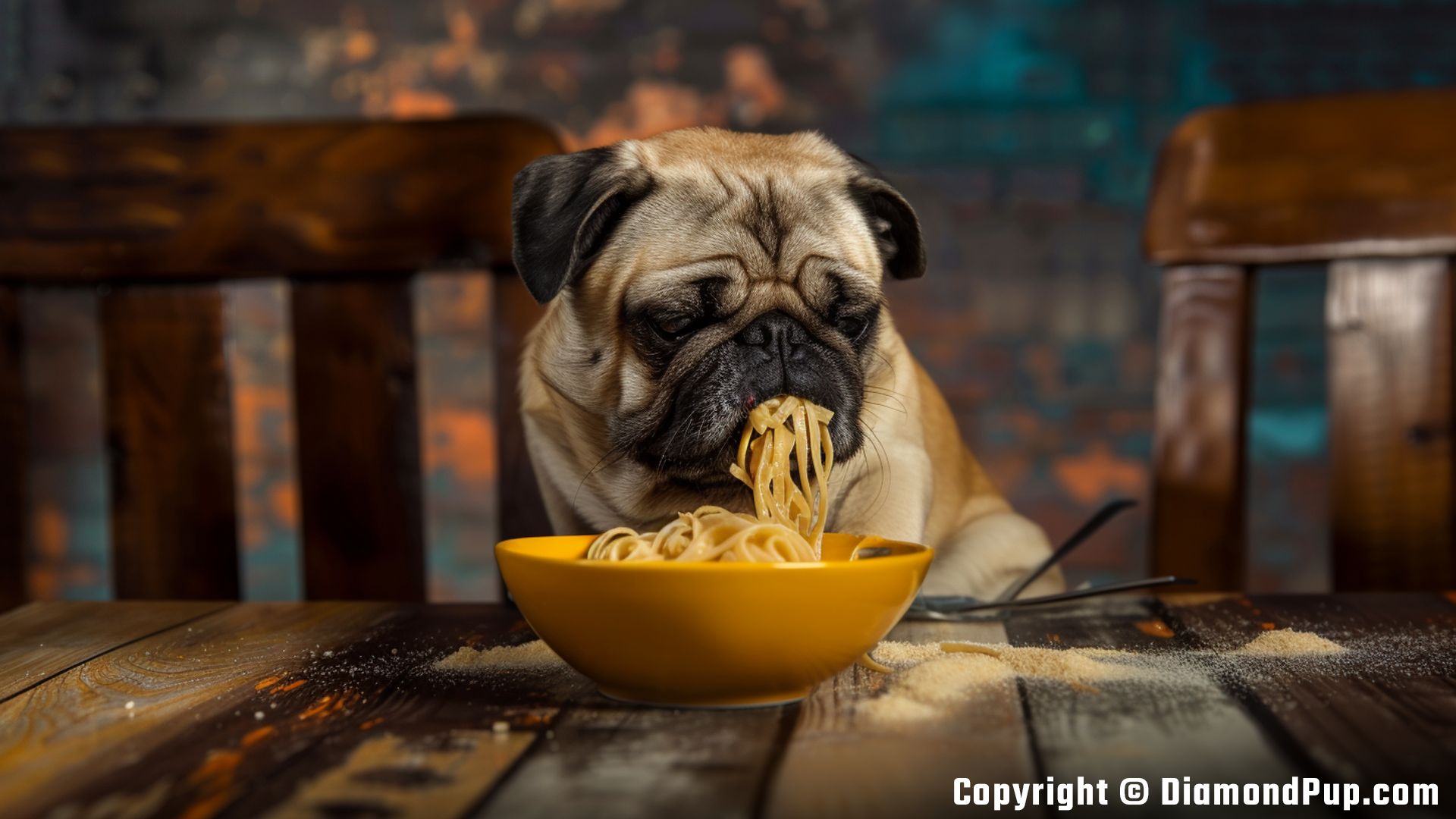
How to properly feed your pug pastas
When it comes to feeding your pug pasta, there are a few important factors to consider. Firstly, it's crucial to choose whole wheat or brown rice pasta over regular white pasta, as these options are higher in fiber and nutrients essential for your pug's health. Additionally, it's best to serve the pasta plain, without any added sauces or seasonings that may upset your pug's stomach. People also ask are pugs allowed to have bacon to which guidelines are similarly discerning. Portion control is key, as pasta should only make up a small part of your pug's balanced diet to prevent weight gain and ensure they are receiving all the necessary nutrients from their main dog food. Always consult with your veterinarian before making any significant changes to your pug's diet to ensure it aligns with their individual nutritional needs.
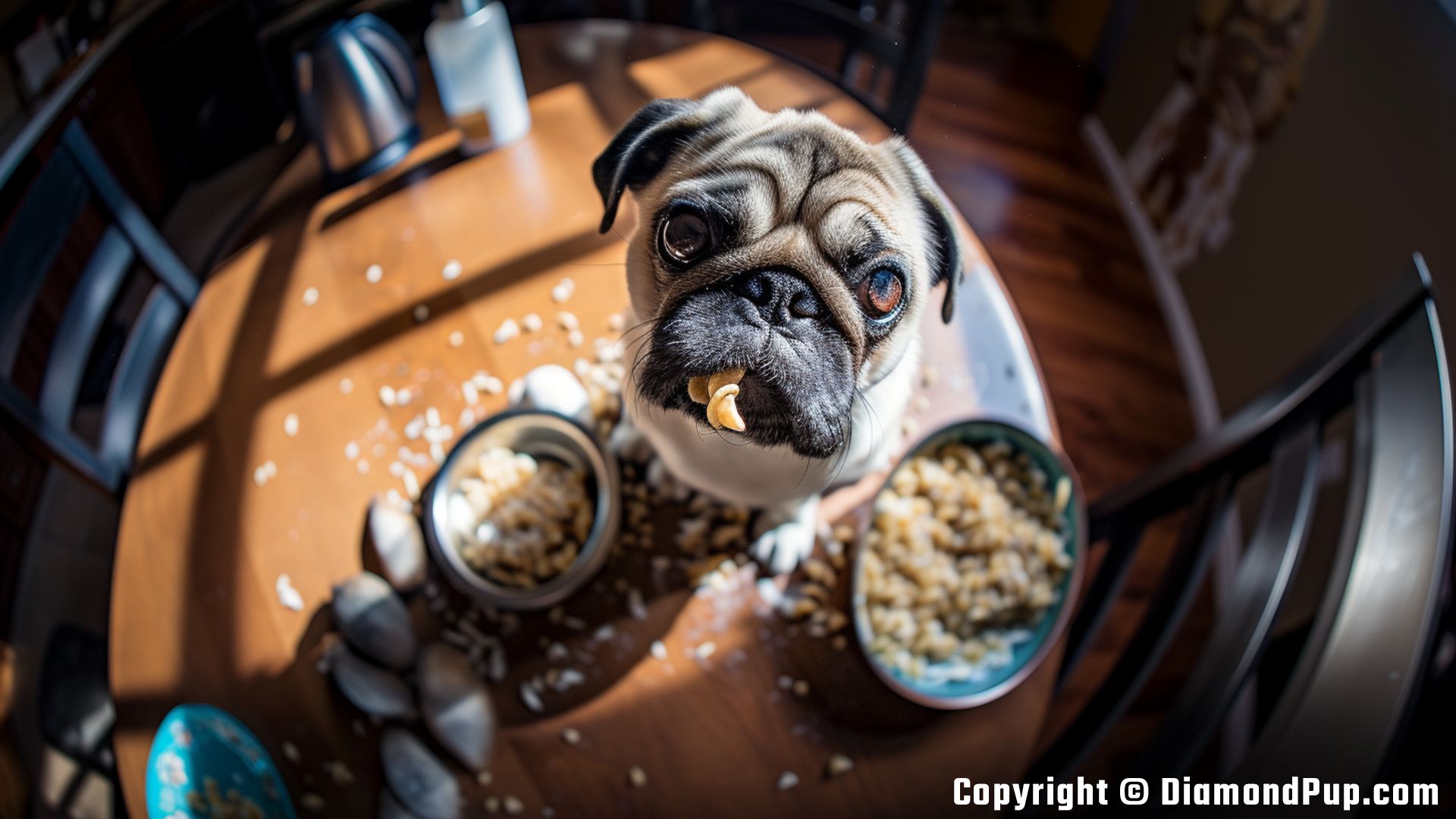
Do Pugs Like Pastas?
Pugs tend to enjoy the taste and texture of pasta, making it a delightful treat for them. However, it's essential to monitor the quantity given, as pugs are prone to obesity due to their small size and large appetite. Moreover, since pugs have a brachycephalic (short-nosed) facial structure, they may have difficulty chewing and swallowing larger pieces of pasta. Therefore, it's recommended to cut the pasta into smaller, bite-sized pieces to prevent choking hazards and aid in digestion. Feeding pasta to huskys: yes or no?
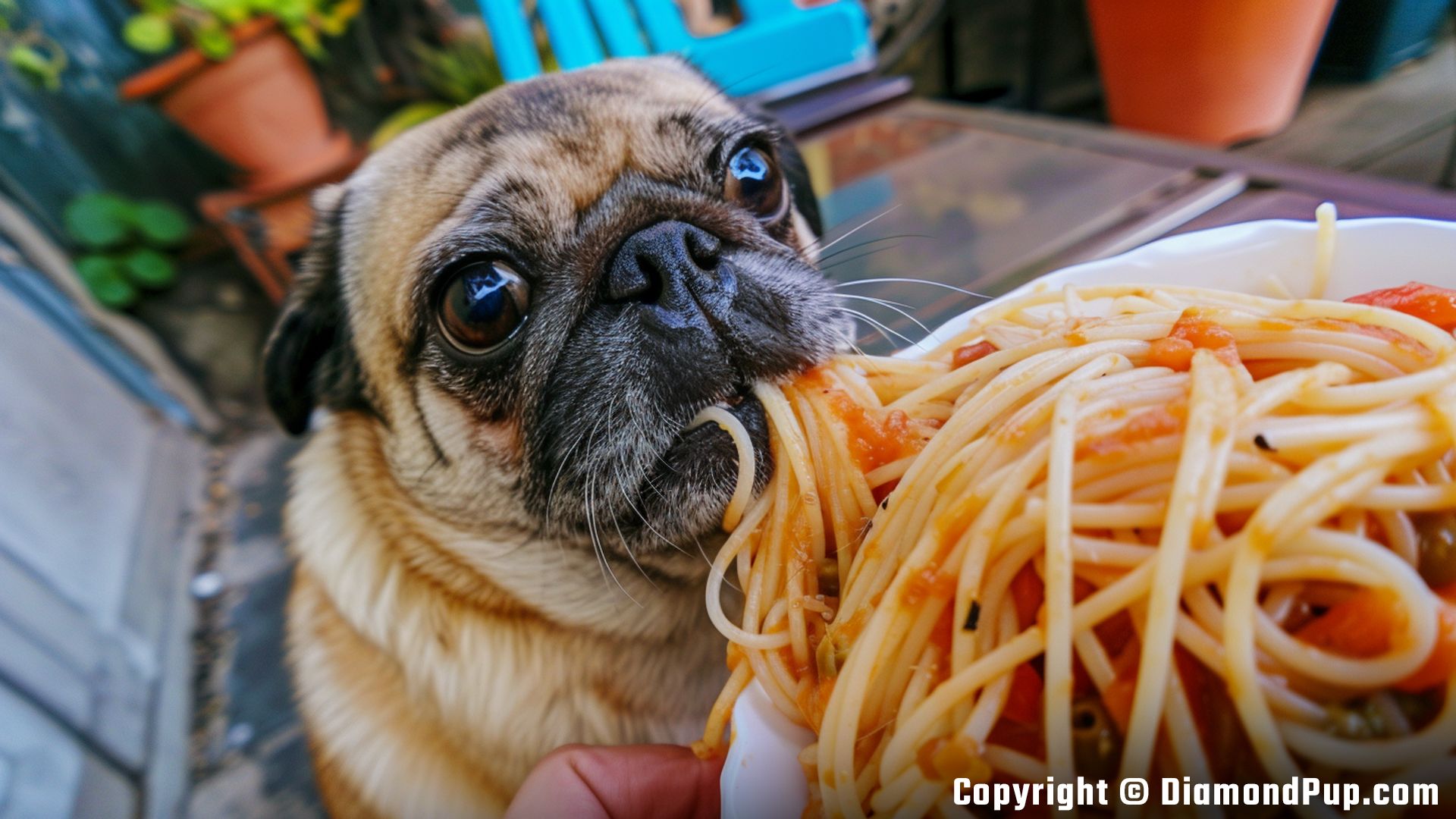
Special Consideration for Pugs
Pugs are known for their propensity to gain weight easily, making it crucial to monitor their calorie intake. When feeding your pug pasta, opt for whole wheat or grain pasta instead of white pasta, as it contains more fiber and essential nutrients. Additionally, be mindful of portion sizes and avoid adding high-calorie sauces or toppings that can contribute to obesity in this breed.
Due to their brachycephalic (short-nosed) anatomy, pugs can experience respiratory issues, which can be exacerbated by excess weight. It's essential to maintain a healthy weight to support their breathing and overall well-being. Consult with your veterinarian to determine the appropriate amount of pasta to include in your pug's diet based on their individual needs and activity level.
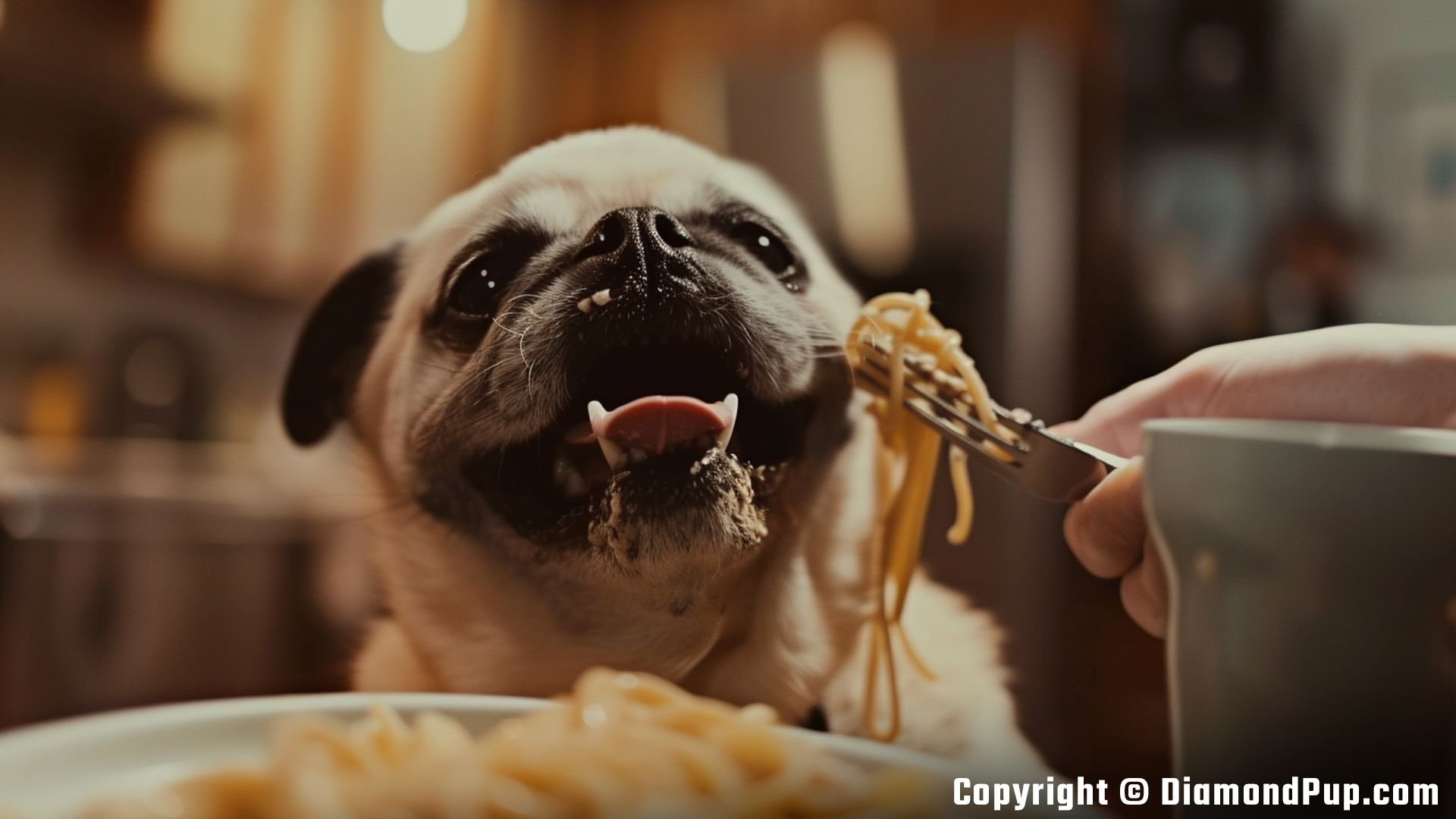
Can Puppies Have Pastas?
When it comes to feeding pasta to pug puppies, it's essential to proceed with caution. Puppies have delicate digestive systems that may not tolerate heavy or starchy foods like pasta very well. While pasta can be a safe occasional treat for adult pugs, it's best to avoid feeding it to young pug puppies. Their growing bodies require a balanced diet rich in nutrients like high-quality proteins, essential fats, vitamins, and minerals to support healthy development.
Instead of pasta, opt for high-quality puppy food specifically formulated for small breeds like pugs. These diets are designed to meet the unique nutritional needs of growing puppies, providing the right balance of proteins, fats, carbohydrates, vitamins, and minerals. Always consult with your veterinarian to choose the best food for your pug puppy's specific age, weight, and health status to ensure they grow up strong and healthy.
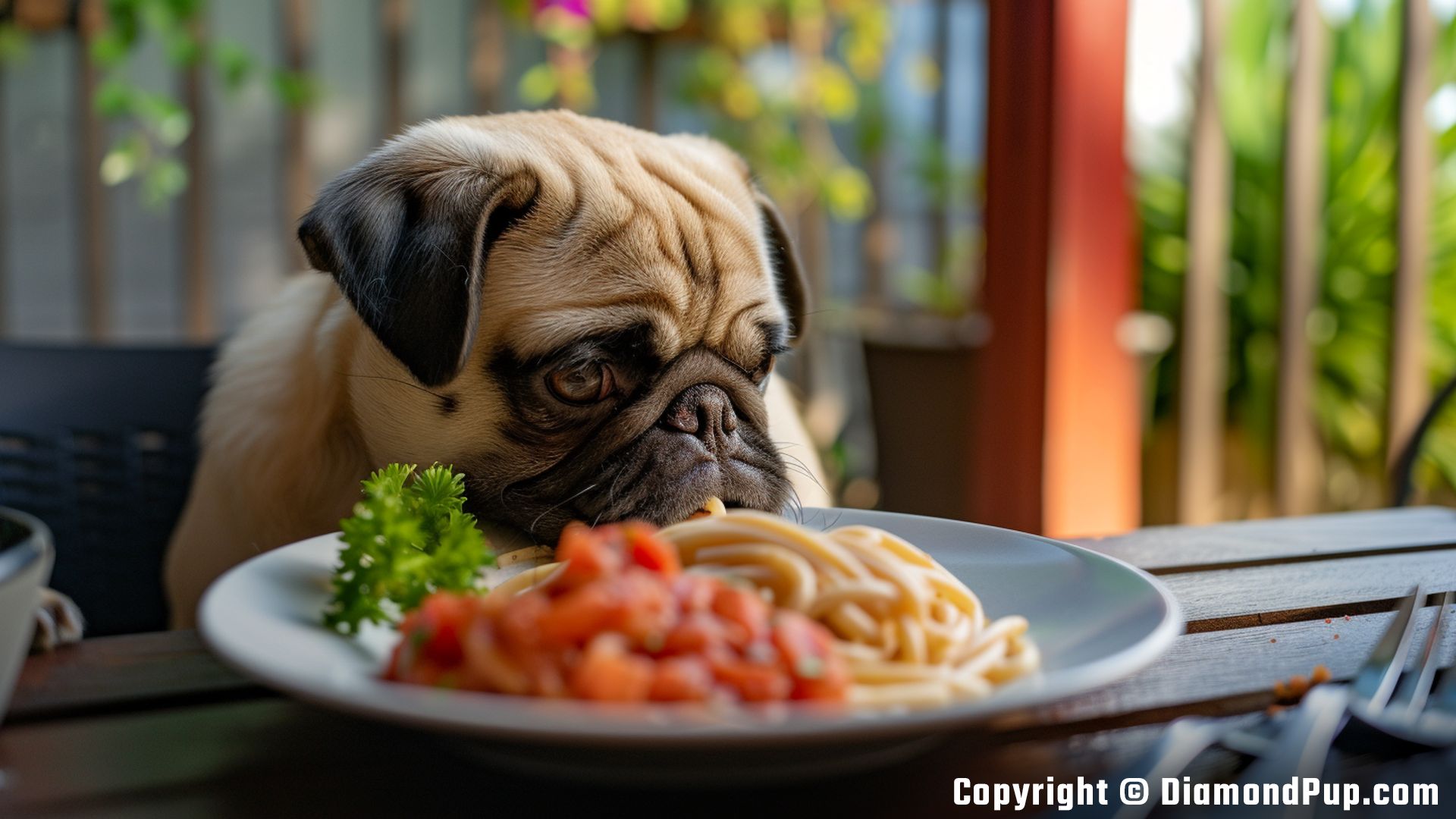
Are there any Pugs that shouldn't eat pastas?
While most pugs can enjoy pasta in moderation as part of a balanced diet, there are some individuals that may need to avoid or limit their pasta intake. Pugs that are overweight or prone to obesity should be cautious with pasta consumption due to its high carbohydrate content, which can contribute to weight gain if not managed properly. Additionally, pugs with sensitive stomachs or food allergies may experience digestive issues, such as bloating or diarrhea, after eating pasta.
It is important to monitor your pug's reaction to pasta and consult with your veterinarian if you notice any negative effects. Your veterinarian can provide tailored dietary recommendations based on your pug's individual health needs and ensure that pasta can be safely included in their diet.
Recipes for Feeding Your Pug Pastas
When it comes to feeding pasta to your pug, it's crucial to opt for whole grain pasta over refined pasta. Whole grain pasta contains higher levels of fiber, which can aid in digestion and help regulate blood sugar levels. Additionally, whole grain pasta provides more vitamins and minerals compared to refined pasta, offering better overall nutritional value for your pug. Be sure to cook the pasta thoroughly to make it easier for your pug to digest.
While preparing pasta for your pug, avoid adding ingredients like garlic, onions, or heavy cream sauces, as these can be harmful to your pet. Instead, consider mixing in some lean protein such as boiled chicken or turkey, and vegetables like broccoli or spinach for added nutrients. Remember to always consult with your veterinarian before introducing any new foods to your pug's diet to ensure it aligns with their individual nutritional needs.
Alternatives to Pastas for Pugs
While pasta can be a tasty treat for pugs, it's essential to offer a balanced diet with a variety of nutrients. For a pug, a diet rich in lean proteins, healthy fats, and complex carbohydrates is ideal. Instead of pasta, you can consider feeding your pug high-quality commercial dog food specially formulated for small breed dogs like pugs. Look for a dog food that lists a high-quality animal protein as the first ingredient, such as chicken or turkey. Additionally, make sure the food contains essential vitamins and minerals like vitamin E, omega-3 fatty acids, and antioxidants to support your pug's overall health.
In addition to commercially available dog food, you can also include cooked vegetables like carrots, green beans, and sweet potatoes in your pug's diet. These veggies are not only low in calories but also rich in vitamins and minerals that can benefit your pug's health. Just make sure to chop them into small, manageable pieces to prevent choking hazards. Remember, while pasta can be given occasionally as a treat, it should not make up the majority of your pug's diet to ensure they receive all the essential nutrients they need to thrive.
Common Questions About Pugs and Pastas
One common question that Pug owners often have is whether pasta can cause weight gain in their furry companions. While pasta can be a tasty treat for Pugs, it is essential to monitor the portion sizes to prevent excessive calorie intake. Pugs are prone to obesity due to their love for food and their tendency to gain weight easily. Therefore, it is best to offer pasta to Pugs in moderation and as an occasional indulgence to avoid unwanted weight gain.
Another frequently asked question is whether pasta can cause digestive issues in Pugs. Pasta, especially when cooked al dente (firm to the bite), is generally safe for Pugs to consume. However, Pugs may have sensitive stomachs, so it is crucial to introduce pasta gradually into their diet to assess their tolerance. Additionally, it is essential to avoid giving Pugs pasta with rich and heavy sauces, as these can upset their stomach and cause digestive problems.
Subscribe Now
Stay updated with the latest news and articles! We'll keep you updated on the latest tips for your pet Pug
